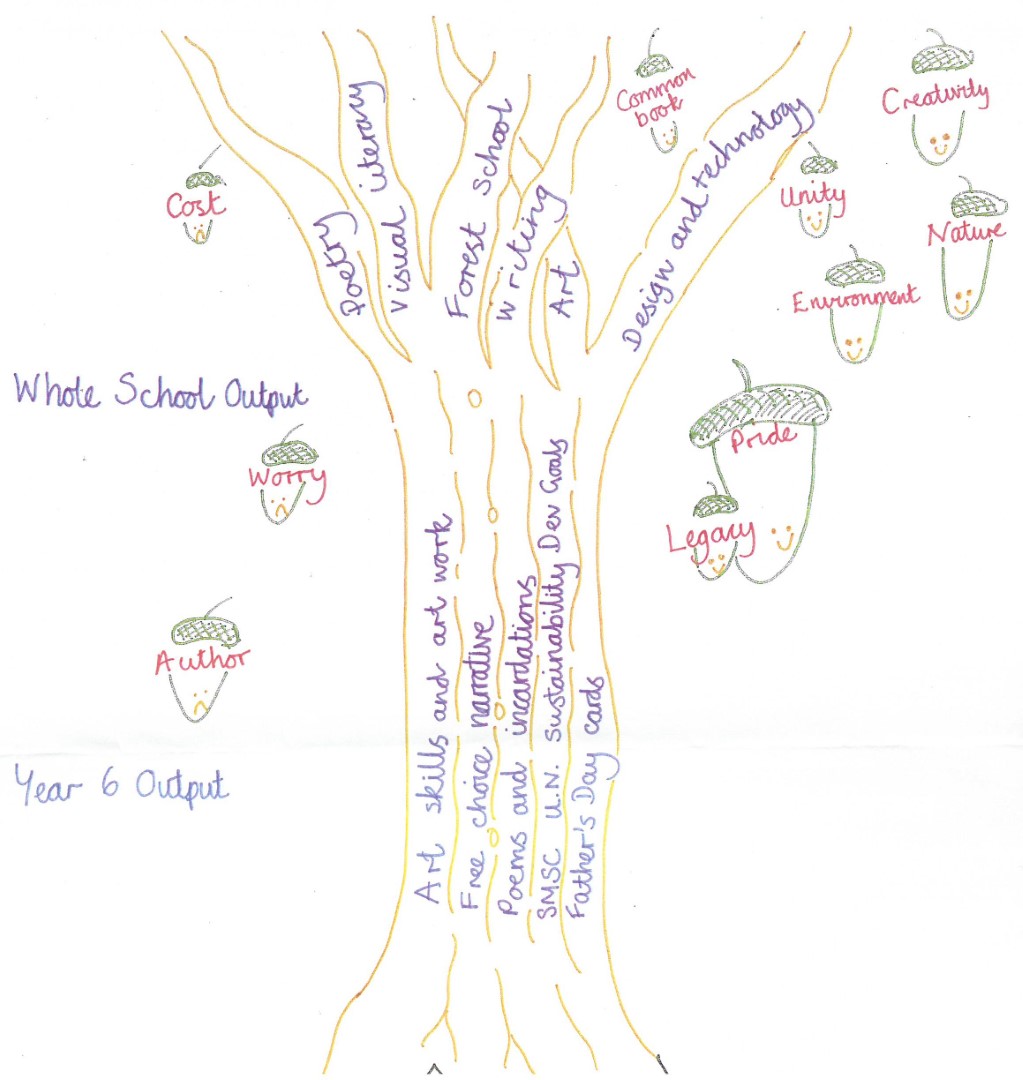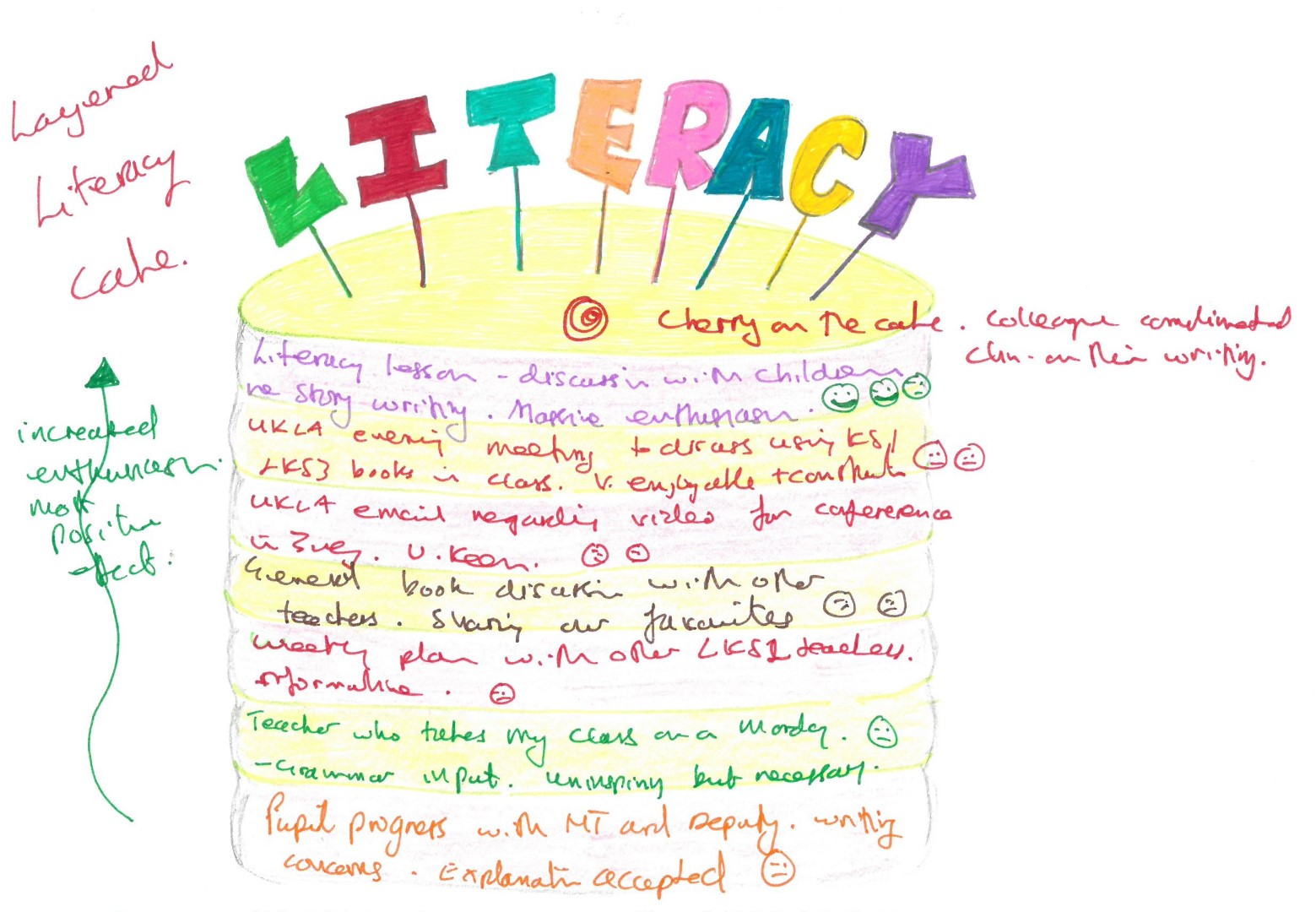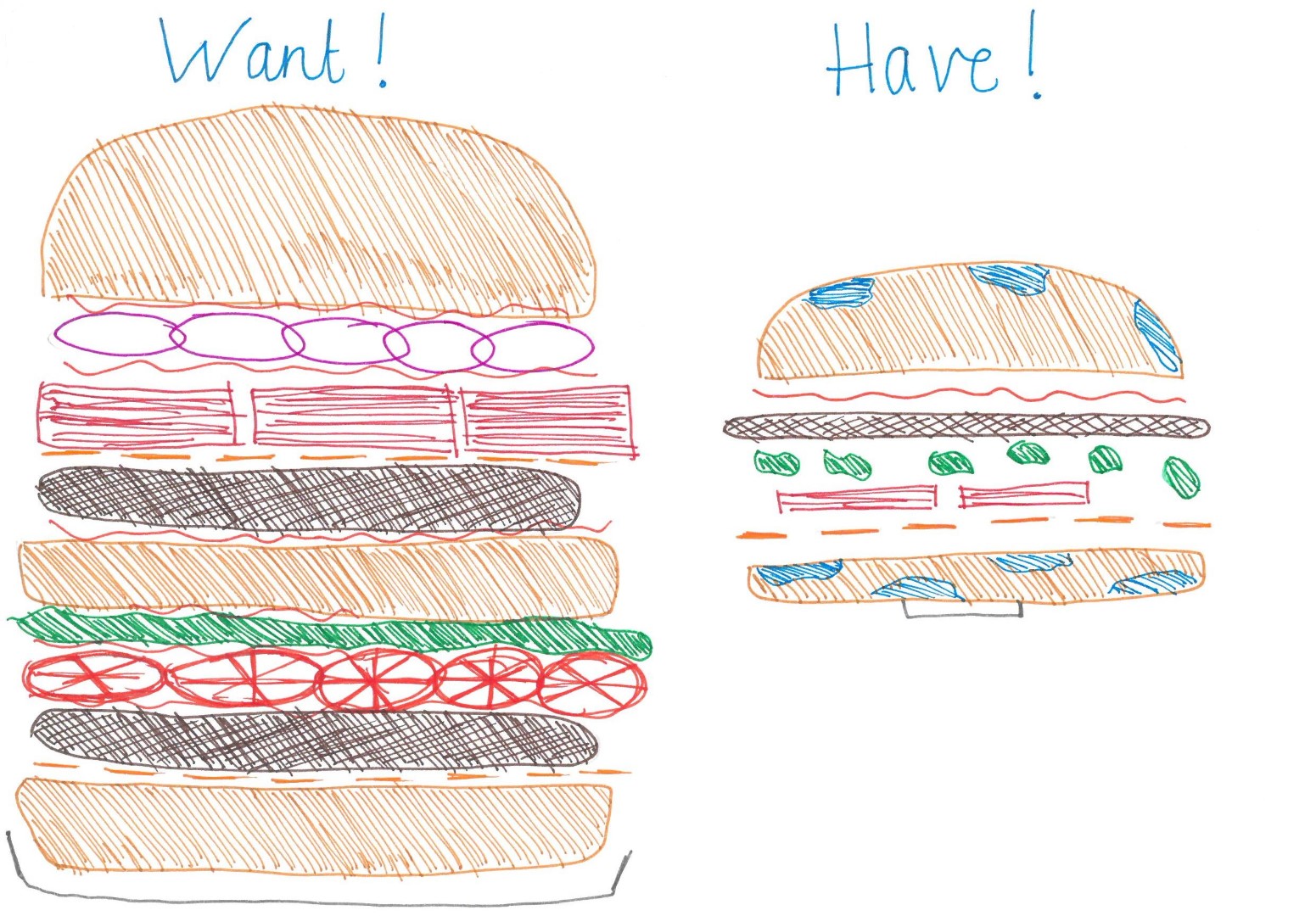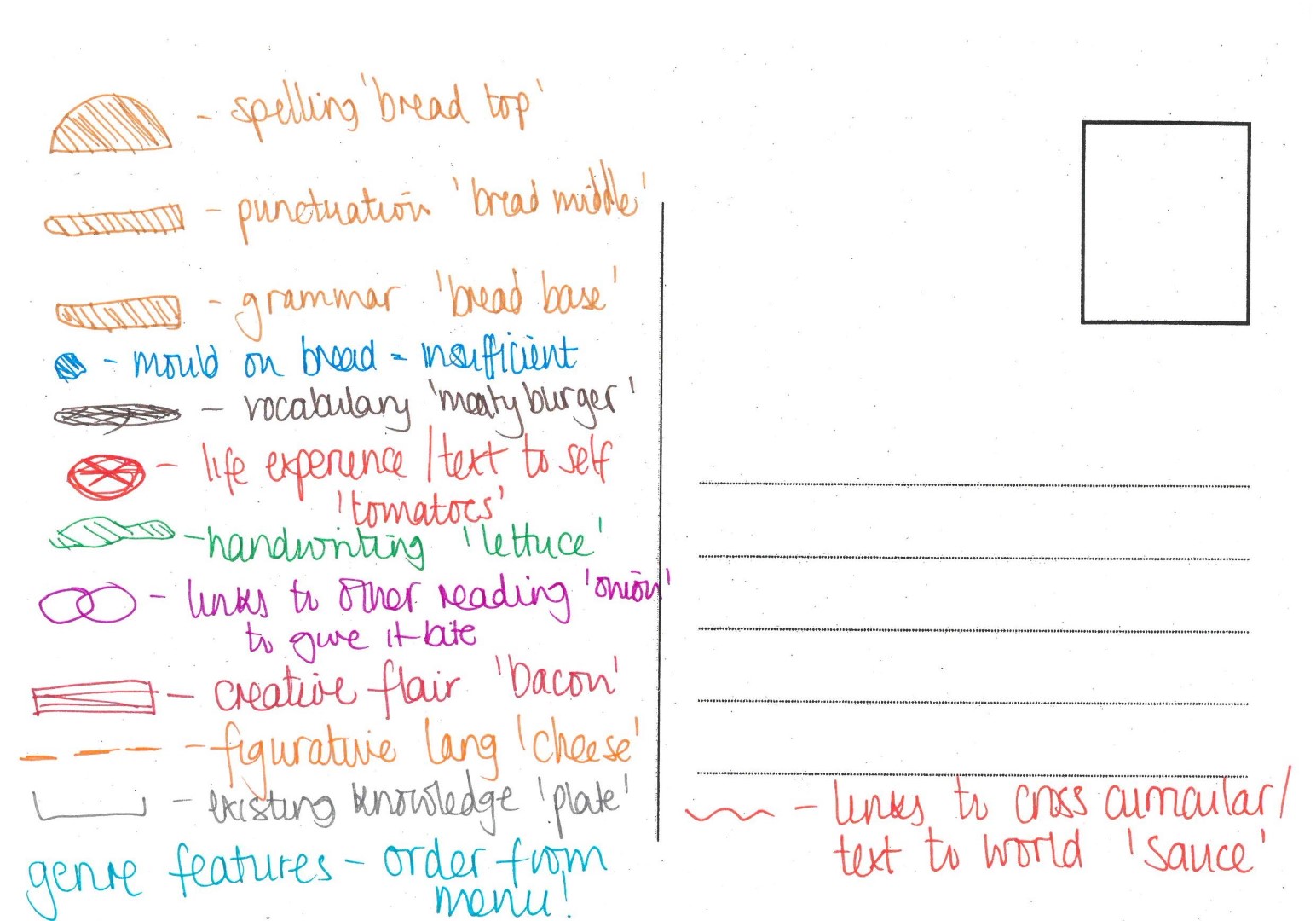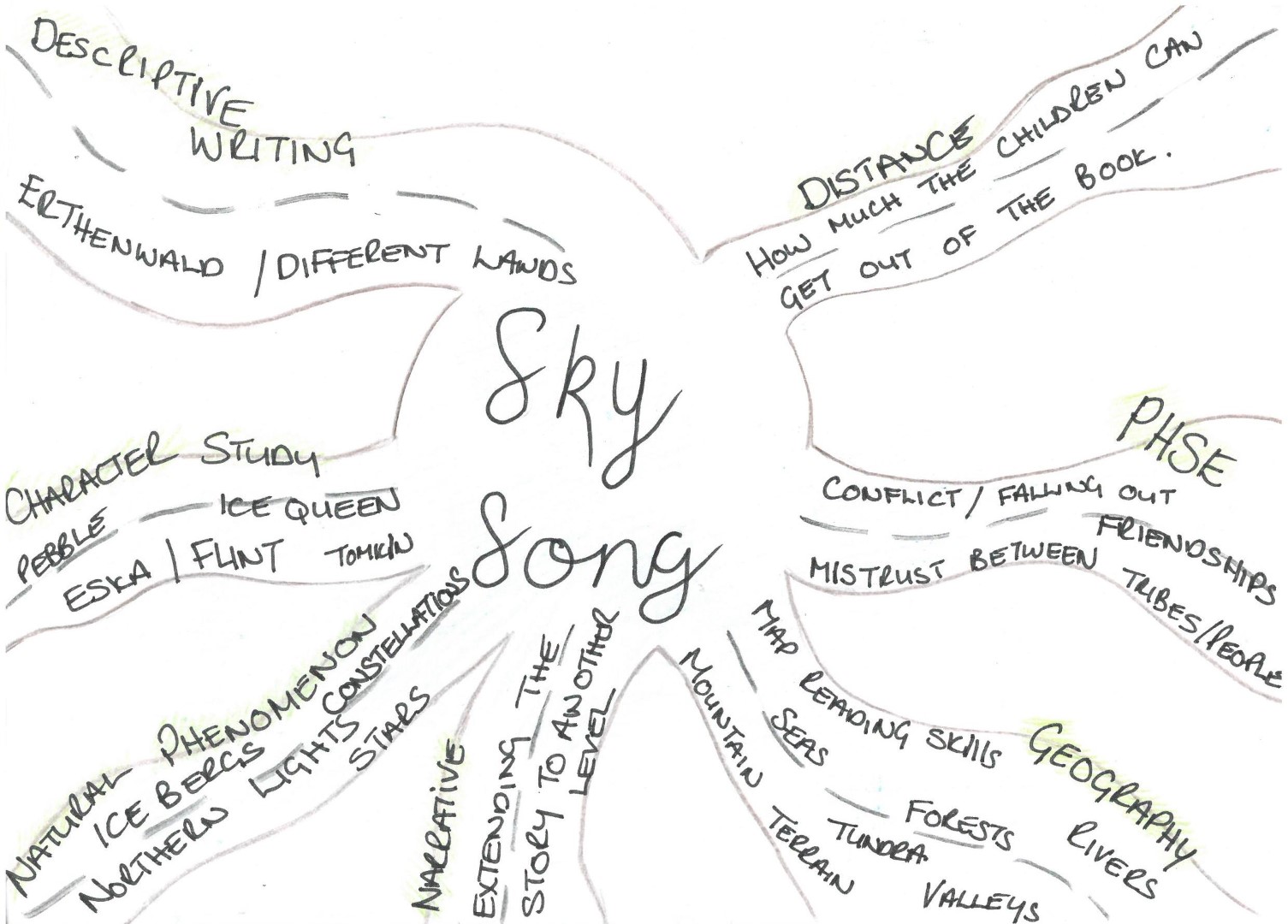METAPHORS
What's on the menu for Y6 writing?
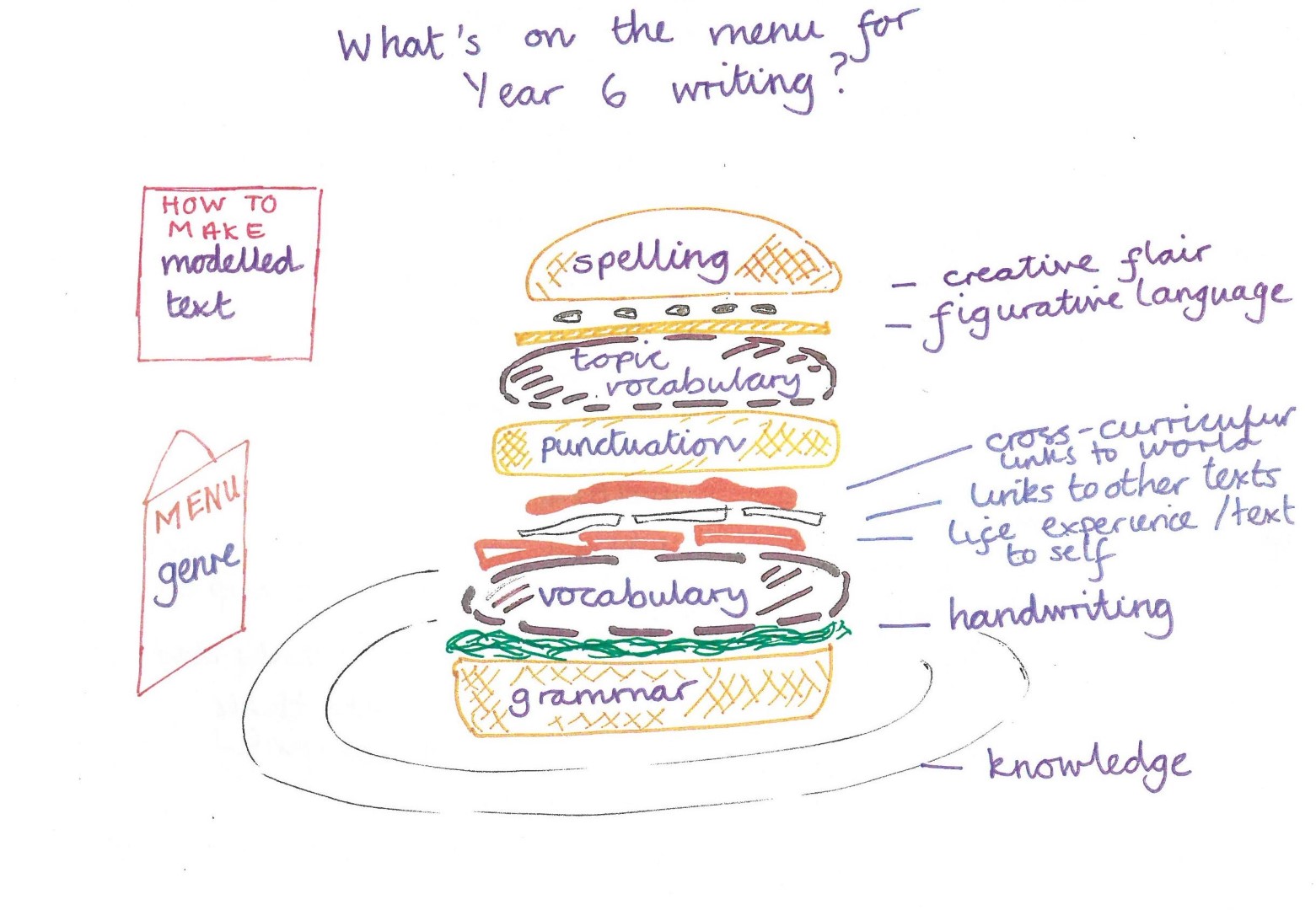
"The figurative language is something I really value but when I'm assessing writing, say if it's Year 6 and it's expected, is it actually valued that much against the writing exemplifications we have to use? Not particularly. I put it in there as a cheese because I thought that changes a meal completely; it can change your burger completely from a burger to a cheeseburger. The really important bit for me is my toasted pine nuts under the spelling one, that's what they have there! They can transform a meal. They can transform your writing and that creative flair to me is what I want as a teacher, I want to see in there, that's what I value in their writing but on the checklist it's not valued at all, it's all this other meaty bit. You can have the burger without the toasted pine nuts. You can have the writing without that creative flair for them to get to expected."

Reflecting on marking English books
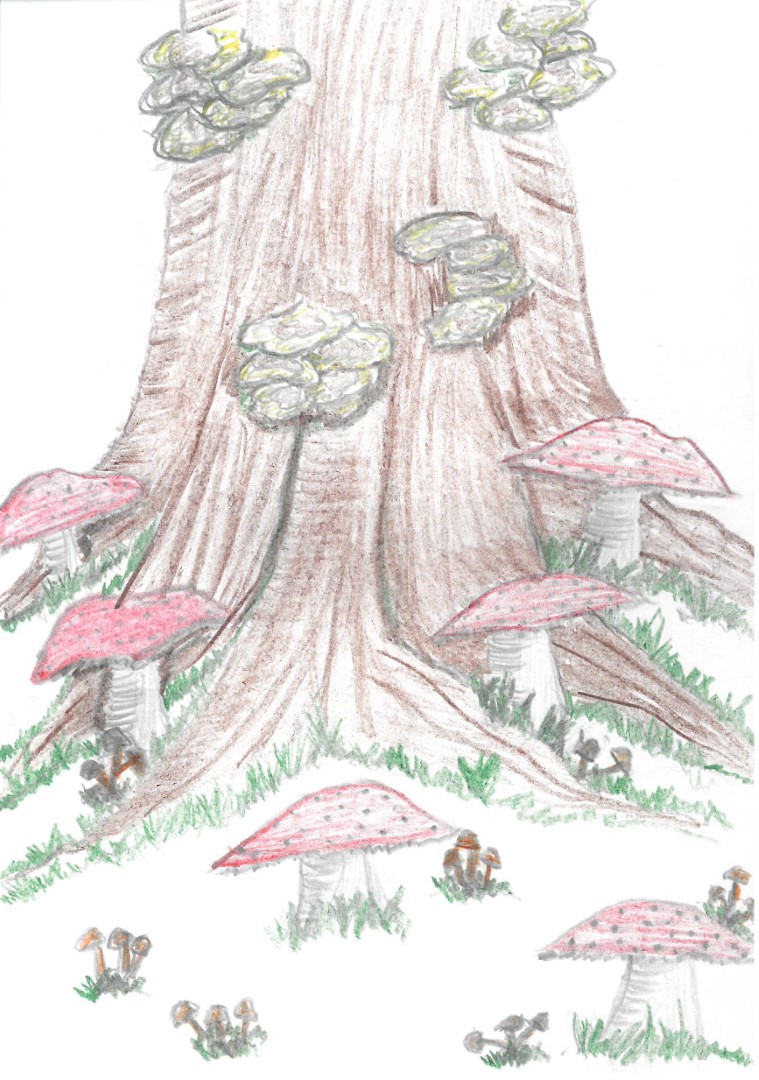
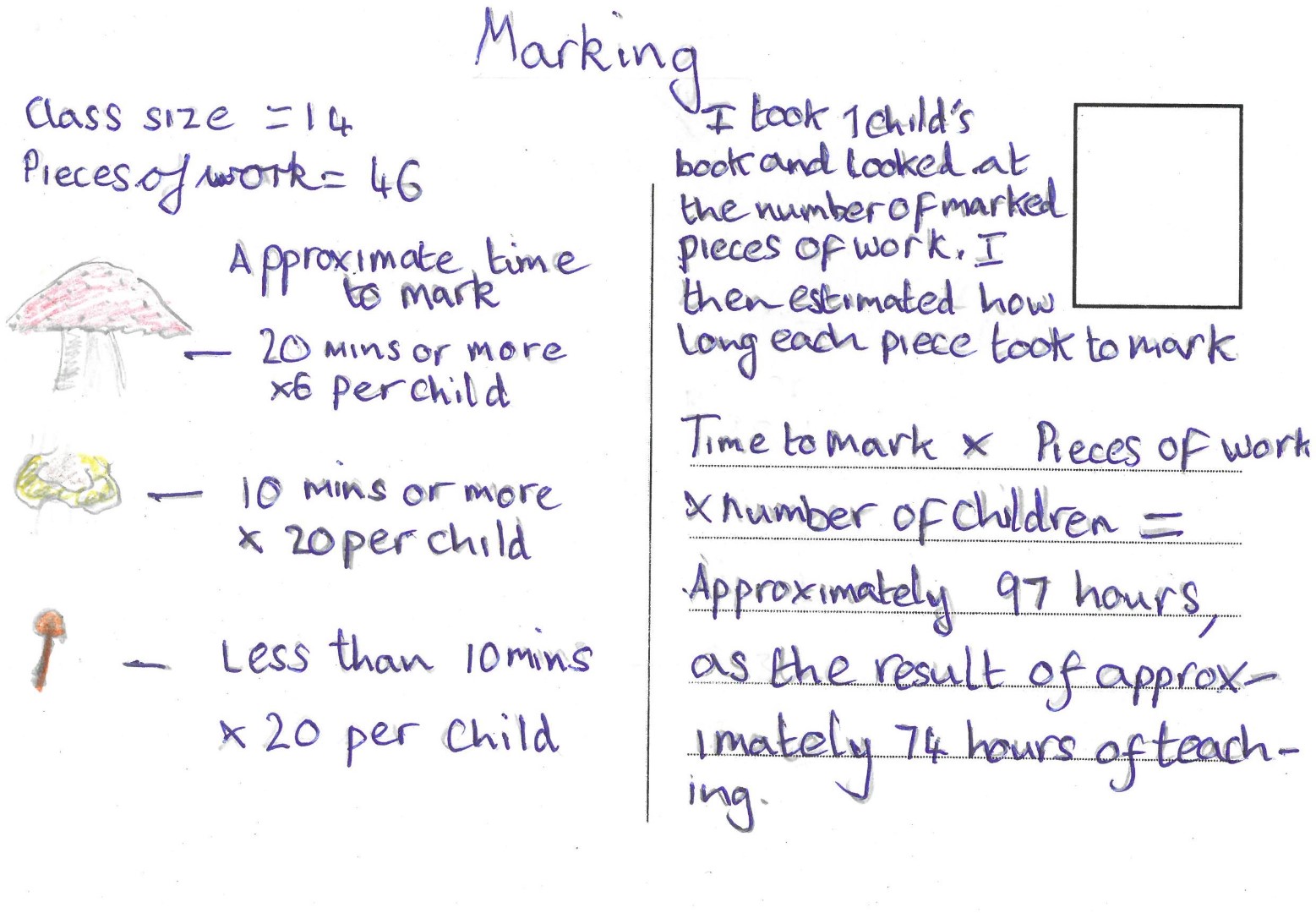
“Obviously there's no accounting for also the planning time that's gone in to the lesson. For the lessons that were less than ten minutes I took that as being five minutes to mark each piece so obviously it could have been more, could have been less. Off the others I've said 20 minutes or more but when I did the maths I just used 20 minutes or 10 minutes, so I've gone with the minimums. So I would say conservatively 97 hours.
I chose mushrooms because we were doing something in science, and we were talking about how mushrooms and fungus were like a completely different classification of living thing all to themselves and I kind of feel like that about marking.
“It's a fungus!”
“Well, yeah, sort of because it just eats away at your time.”
“It doesn't make you a fungi!”
“It certainly doesn't! Just ask the kids in my class!”
Representing the different aspects of English teaching and literacy
“So I tried to think about the elements of a tractor and how that would link to English teaching and literacy teaching. I tried to think about the hours that I spend ... I tried to think about where the parts of the tractor are in terms of the importance of the element.
The engine, the driver for me is creativity because I think, again, coming back to books and other things you need to have that to motivate children to want to take part in the lesson but I couldn't quantify that in terms of time because it kind of built in to everything so it's a bit tricky. In terms of the teaching element I put that as the main body of the tractor because obviously we have – In our school we teach at least an hour of English a day and then we have some extra bolt-ons so little SPAG sessions or little whole class reading sessions so it works out about seven and a half hours give or take”
Inspired by a whole school week on ‘The Lost Words' by Robert Macfarlane and Jackie Morris
“Last year we did a whole school week where we transformed our library, we did a fairytale one and each class took a fairy-tale, made artefacts, writing, we displayed it to transform the library because it was looking a bit of a sorry state. We wanted to refresh it so this year we've decided to do the 'Lost Words' week and tie it in with nature. So what I did was I did the input that we had in Year 6 which is the roots of the tree that you've got there, so things like reading 'The Lost Words'. Then on the trunk of the tree I put down what the Year 6 output was, so what work did they actually do? What things did they generate? ... My little acorn over here is the cost. I've got some little frown faces. We did buy three books so it was shared one book between two classes which is a shame that's all we could afford but that cost us £39 and it doesn't sound a lot but there isn't a lot of budget to go around for something like that.”
How I plan English sessions
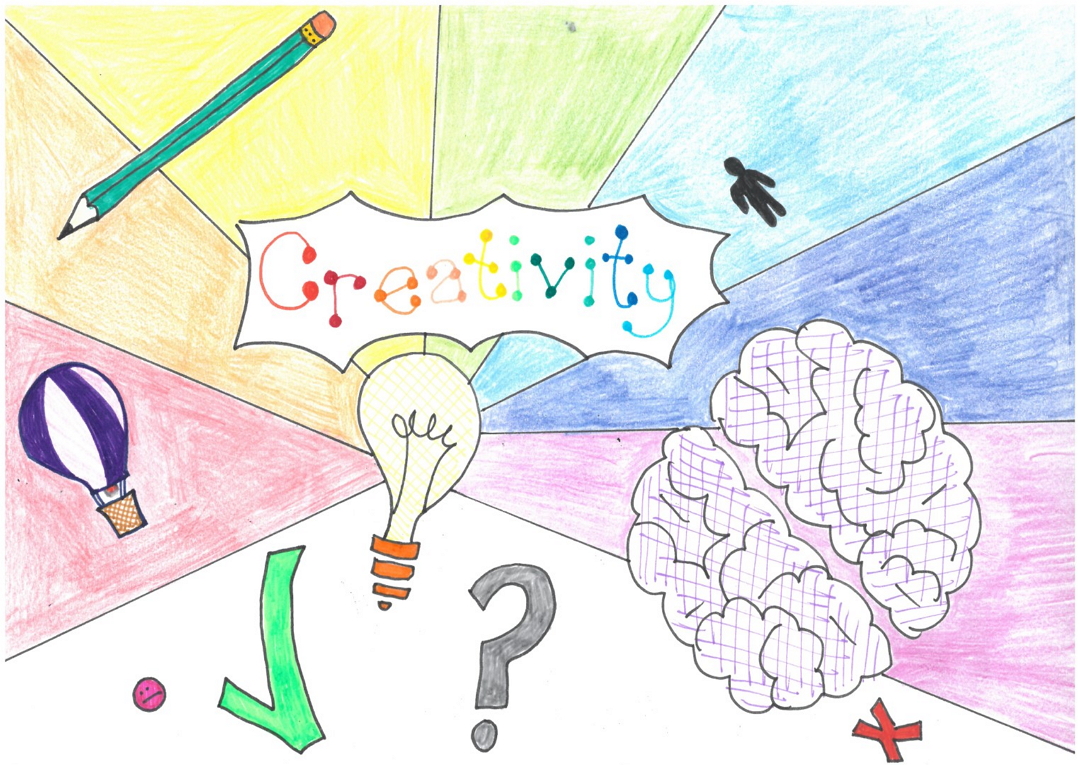
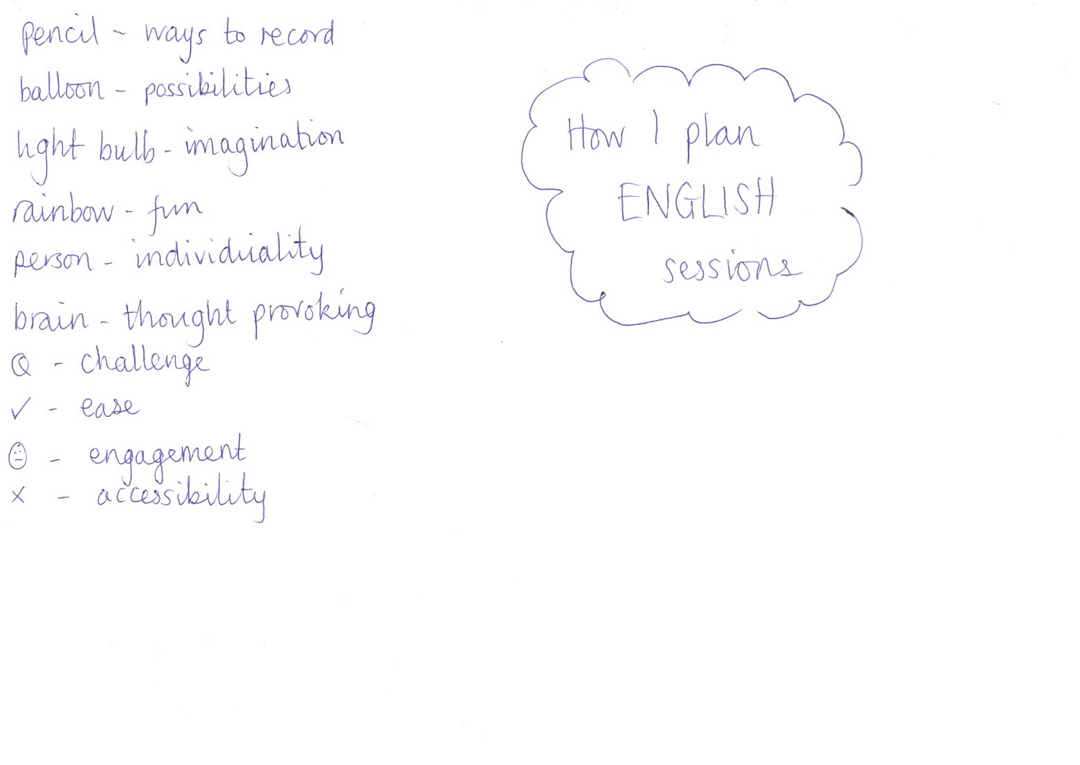
"In terms of the really badly drawn brain in the bottom corner! Again, I do try and make it so that there's something thought provoking in there and while I was writing down what I could draw for these, which is my little list at the bottom, I was thinking, right, I want to do something in terms of size to represent how much stock I put in to those. So the sizes and where they are on the page is relating to how much of a conscious focus I put on them when I'm planning. So obviously I try and get something that's thought provoking, I try and get something that sparks imagination. Something that does create a little bit of individuality so that's a little floaty person in the blue bit because, again, what I'm very aware of is as Year 6 we do fall in to a danger of producing little robots that can answer a test and off they go and I'm very aware that I don't want that to happen so I think I try and keep that at the centre to try and make sure that there is that creativity and that the individual children can use those possibilities and float off and it's not a big deal and I try not to panic if their outcome is totally different to what I expected, I sort of shift my expectations almost."
Discussing literacy
“Then above that I've put general book discussion with other teachers. There's quite a few new realising, ... use a class book and, hey, you get fantastic writing. So round the dinner table we will have discussions about books they may have read, we swap ideas. Now, some of the books I use, I think I told one why are you using that because then I can't use it if you've read it! (laughter) ... But it's useful. 'Have you read this?' 'I use this.' I enjoyed that, that's got two smiley faces. ...
Then at the top I've got the actual literacy lesson discussion with the children regarding the story writing from The Wild Robot and Escape of The Wild Robot which is its sequel. ... they were really, really enthusiastic about it and it was great and we've just almost finished the sequel but they got a lot from that book, we've done a lot with it and we've got a lot of science and they're interested in the science of the Mars Rover, how it got up there, what it's doing, how it's sending – All the facts and figures about space which children love, and then marrying it. ”
"I've done what I'd like in Year 4 writing versus what I'm working with! The blue is the mould to say that whilst there is some spelling, punctuation and grammar present there are holes in it; it's very flawed. My children aren't hot at spelling or using a dictionary to help them spell. Grammar has to be very structured and punctuation is a constant reminder, even the basics like we've just said, it's capital letters, full stops all the time. I went for bacon to represent creative flair and I've got possibly two children in mine that have some of that whereas the rest, it's tricky."
How creativity flows from a good book
"So I've put up distance, how much the children can get out of the book, how far they can metaphorically travel. … So basically it's all the roads we went down from the book. Lots of roads you could go down. I think if you get a good book the creativity just flows and 'Sky Song' is just one of those books."

